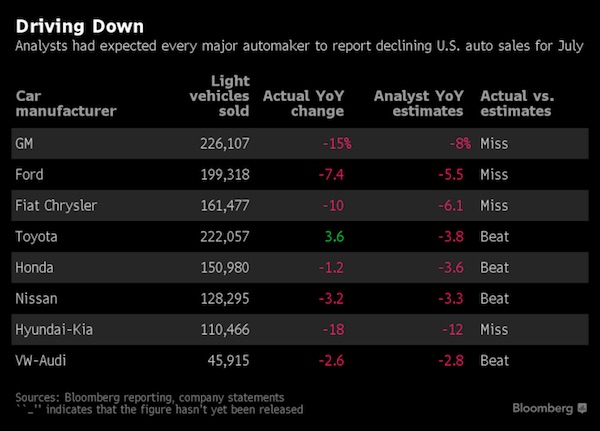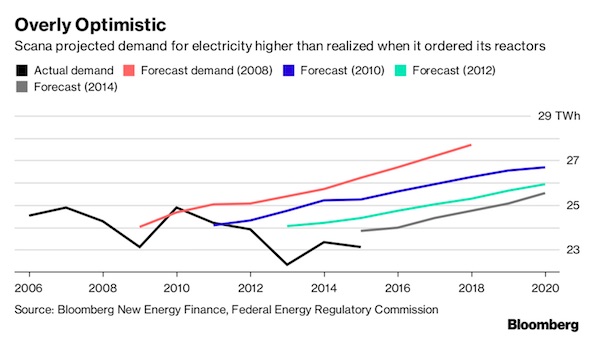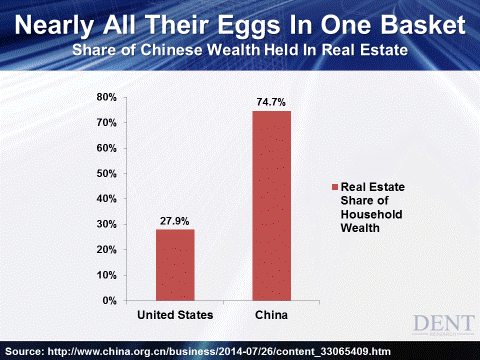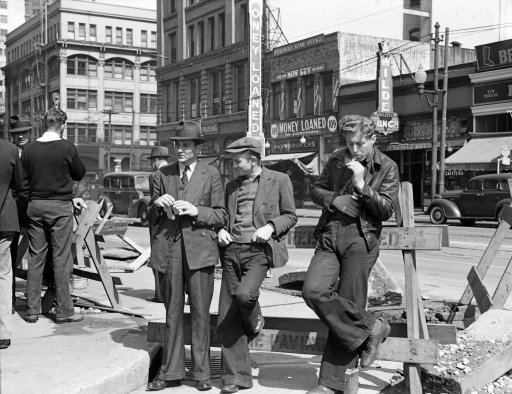
Amedeo Modigliani Elvira Resting at a Table 1919



“Italy’s coronavirus commissioner said that vaccinations had been cut from 80,000 a day to 28,000 a day, Italian media reported. He said Italian authorities were considering taking legal action against Pfizer..”
• EU Vaccine Delays Dog Effort To Speed Up COVID Inoculations (EN)
AstraZeneca’s EU vaccine shipments will be delayed, the EU’s health commissioner said, in yet another obstacle to the bloc’s COVID-19 vaccination rollout. “The EU Commission and Member States expressed deep dissatisfaction with this,” Stella Kyriakides tweeted on Friday after member states heard from AstraZeneca representatives. The AstraZeneca/Oxford vaccine is expected to receive approval from the European Medicines Agency this week, and any delay or shortage of doses could be a significant speed bump as member states race to vaccinate their populations amid a worsening COVID-19 crisis. The emergence of more transmissible variants of coronavirus has caused significant concern in Europe with the UK reporting record daily hospitalisations and deaths due to the virus mutations.
Johnson warned on Friday that early evidence showed the new variant could be more deadly as well. Countries are racing against the clock to vaccinate as many people as possible before the variants spread further. But Pfizer said just last week that fewer doses would be available in the EU in late January and early February due to quality tests at the manufacturing plant in Belgium. Some EU countries have since had to cut vaccinations amid the delays, prompting criticism of the pharmaceutical companies behind the vaccines. Domenico Arcuri, Italy’s coronavirus commissioner, said that vaccinations had been cut from 80,000 a day to 28,000 a day, Italian media reported. He said Italian authorities were considering taking legal action against Pfizer, AP reported.
Authorities in Germany’s most populous state said that due to delays in delivery of the Pfizer/BioNtech vaccine they would halt first vaccinations. North Rhine Westphalia had received 100,000 vaccine doses less than originally planned, the state said. Germany’s health minister Jens Spahn said that “we are currently in a phase in which the worldwide demand for corona vaccines is very high.”

Well, that’s too bad then. Because you’ve run out.
• Delaying Second Dose Of Vaccine Increases Risk Of New Resistant Strain – Sage (Ind.)
Delaying doses of coronavirus inoculations will increase the chances of a vaccine-resistant strain of Covid-19 emerging, government scientists have warned. In new reports, released by the Scientific Advisory Group for Emergencies (Sage), experts also warned that resistant new variants were a “realistic possibility” driven by the virus reacting to increasing levels of natural immunity among the population. The government’s decision to delay the second dose of vaccines to 12 weeks rather than three, to try and give more people some protection from the virus, has sparked anger among frontline health workers who fear they are being left at increased risk from infections.
There have also been suggestions from Israel, that have yet to be fully validated, that the protection from a first dose could be far less than originally thought. In papers released on Friday, Sage scientists there was an “increased risk of virus replication under partial immunity after one dose than after two doses, so in the short term, delaying the second dose would be expected to somewhat increase the probability of emergence of vaccine resistance – but probably from a low base. “Is such an increase material? It is not currently possible to quantify the probability of emergence of vaccine resistance as a result of the delayed second dose, but it is likely to be small. The UK currently has more than 1,000 Covid-19-related deaths each day and has limited supplies of vaccine.
“In the current UK circumstances the unquantifiable but likely small probability of the delayed second dose generating a vaccine escape mutant must be weighed against the measurable benefits of doubling the speed with which the most vulnerable can be given vaccine-induced protection.”

While his WHO colleagues are still in China?!
• WHO Advisor: COVID19 Pandemic Likely Started Via Lab Leak (TSun)
One year after the pandemic started, World Health Organization advisor Jamie Metzl wants China to come clean about the origins of the COVID-19 virus. The Kansas City-born, New York-based Metzl, who served as Deputy Staff Director of the Foreign Relations Committee under then Senator Joe Biden (2001-2003) and before that on the National Security Council (1997-99) and the State Department (1999-01) under President Bill Clinton), theorizes it was most likely an accidental lab leak in Wuhan. “There’s no irrefutable evidence,” said Metzl, who was appointed to the WHO’s expert advisory committee on human genome editing in 2019 and is also the author of Hacking Darwin. “There’s just more evidence and as more evidence arrives, the case for accidental lab leak, in my view, increases.”
We caught up with Metzl down the line from San Miguel de Allende: What about the original theory that this all started in a wet market in Wuhan? That was a lie. And the Chinese government knew very early on that that was a lie. And so in the face of overwhelming evidence in May of last year, the Chinese government shifted its position. Do you get the idea of scary viruses being created in a lab may seem a little sci-fi? It may feel like sci-fi to people but what’s happening is sci. There is a field of study called “gain of function” research, which is highly controversial in which some scientists amplify the virility of viruses. We know that the Wuhan Institute of Virology was involved in gain of function research on bat coronaviruses.
Is it because this specifically started in China that we still don’t know how COVID-19 started? If there had been an outbreak in Congo or some country in Africa and that country, in the earliest days of the pandemic, prevented World Health Organization investigators from going onto the scene of the outbreak, for nearly a month, the world would have gone berserk. Will a change of the U.S. administration help find an answer? Biden will be tougher on China than President Trump because President Biden is very smart and strategic and he understands that American power and American strength doesn’t rest on bluster, it rests on principles, it rests on partnerships, and alliances and accountability. And the Trump administration unfortunately gave China a pass by over politicizing the question of the origin of the virus by alienating America’s partners and allies.

So when’s the big rollout?
• ‘Miraculous’ Ivermectin Approved For Use In The US For COVID-19 (LS)
Following the diligent efforts of physicians associated with a group called Front Line Covid-19 Critical Care Alliance (FLCCC), the National Institutes of Health (NIH) has upgraded their recommendation for the “miraculous” drug ivermectin, making it an option for use in treating COVID-19 within the United States. The result comes one week after Dr. Paul Marik and Dr. Pierre Kory—founding members of the FLCCC, along with Dr. Andrew Hill, researcher and consultant to the World Health Organization (WHO), presented their data before the NIH Treatment Guidelines Panel. A press release from FLCCC explains the “new designation upgraded the status of ivermectin from ‘against’ [the drug’s use] to ‘neither for nor against,’ which is the same recommendation given to monoclonal antibodies and convalescent plasma, both widely used across the nation.”
“By no longer recommending against ivermectin use,” the statement said, “doctors should feel more open in prescribing ivermectin as another therapeutic option for the treatment of COVID-19. This may clear its path towards FDA [Food and Drug Administration] emergency use approval.” “Ivermectin is one of the world’s safest, cheapest and most widely available drugs,” explained Dr. Kory, President of the FLCCC Alliance. “The studies we presented to the NIH revealed high levels of statistical significance showing large magnitude benefit in transmission rates, need for hospitalization, and death. What’s more, the totality of trials data supporting ivermectin is without precedent.”

How many lives could have been saved?
• Lancet Retracts Study That Claimed HCQ Is Ineffective (NF)
A leading medical journal has issued a retraction of their endorsement for a study that concluded the anti-viral drug hydroxychloroquine was ineffective against the COVID-19 virus. This retraction appears to validate the claims then-President Trump made about the medication being a frontline drug in the battle in the pandemic. The Lancet, a respected online medical journal, issued an apology to its readers in an edition last year after the retraction. “We deeply apologize to you, the editors, and the journal readership for any embarrassment or inconvenience that this may have caused,” the publishers of The Lancet said.
Compared to the significantly more expensive medications being used to treat the virus, hydroxychloroquine – a drug widely used to treat malaria – is relatively inexpensive and universally available. Hydroxychloroquine ranges in price from $0.30 to $6.63 per dose depending on location. The Lancet’s endorsement of the study was withdrawn because the Surgisphere Corporation, the company that provided data, refused to provide full access to the information it based its study on. Peer review medical journals typically engage in third-party peer review to validate the findings. The Surgisphere Corporation said it refused to release the study data because it would violate client agreements and confidentiality requirements, raising questions about the study’s legitimacy.
“Based on this development, we can no longer vouch for the veracity of the primary data sources. Due to this unfortunate development, the authors request that the paper be retracted,” The Lancet said in a statement. In the now debunked study, researchers concluded that hydroxychloroquine didn’t aid in curbing the COVID-19 virus. It went on to say that the drug caused heart problems and appeared to elevate the risk of death. The study was immediately embraced by the beleaguered World Health Organization and other groups causing research into the use of the drug to combat COVID-19 to stop.

Let the games ….. continue.
• Moderate Republicans Push Back On Biden’s Economic Plan (NBC)
Key moderate Republicans in the Senate dismissed quick action on President Joe Biden’s top priority of a $1.9 trillion economic package, indicating that the $1,400 stimulus payments he requested could take months, or never arrive. Democrats need to convince 10 Republicans in the Senate, which might require asking for less funding than Biden initially requested, or bypassing the 60-vote threshold utilizing a parliamentarian maneuver. Biden’s team appears ready to mount an aggressive campaign to get Congress to act, a departure from the previous administration that largely failed to engage lawmakers on legislative priorities and did not spend political capital on getting bills passed.
Republicans who would be critical to get to the finish line said they’re open to additional money to speed up distribution of the Covid-19 vaccine, but balked at Biden’s overall price tag. Some called on Biden to pare back the plan while others suggested waiting a few months to see if the economic need persists. Sen. Susan Collins, R-Maine, one of the most moderate Republicans, said she’s “sympathetic” to boosting vaccine funds but doesn’t see the justification for a bill “that is so big.” “It’s hard for me to see when we just passed $900 billion of assistance why we would have a package that big,” Collins told reporters Thursday. “Maybe a couple of months from now, the needs will be evident and we will need to do something significant, but I’m not seeing it right now.”
Sen. Lisa Murkowski, R-Alaska, called Biden’s request “significant,” adding that “the ink is barely dry on the $900 billion” bill. “And so it’s going to require, I think, a fair amount of debate and consideration,” she told reporters. Sen. Mitt Romney R-Utah, a conservative who has a track record of breaking with his party, told NBC News that he isn’t inclined to borrow another $1 trillion or even $500 billion for a broad economic package. “My own view is that what’s holding back the economy is Covid, not money,” he said. “I want to do everything we can to get the Covid vaccines out. But once the Covid vaccine is out and people are inoculated, I believe you’ll see the economy coming back.”

Stretching the law.
• Rand Paul Says Chief Justice Roberts Won’t Take Trump Impeach Trial (NYP)
As Democrats plunge ahead with a post-term impeachment trial of President Donald Trump, a key question remains: Will Chief Justice Roberts take the case? Republican Sen. Rand Paul of Kentucky says he won’t — making the exercise “a fake, partisan impeachment,” the lawmaker told Fox News’ Sean Hannity Friday. Paul claimed Roberts has “privately said he’s not supposed to come unless it’s an impeachment of the president.” According to the US Constitution, “when the President of the United States is tried, the Chief Justice shall preside” — a requirement not made for any other impeachment case. As lawmakers debated the legitimacy of impeachment, the Biden administration continued to keep its distance from the issue.
“Congress is going to do what Congress does,” Ashley Etienne, Vice President Kamala Harris’ communications director, told MSNBC Saturday. One thing Trump enemies in Congress appear to be doing is grasping at straws — even reaching back to a post-Civil War amendment. Several Dems have floated the idea of punishing Trump with the 14th Amendment’s rule that shuts those who “engaged in insurrection or rebellion” out of elective office. “I certainly think there is a 14th Amendment avenue separate and aside from impeachment,” Connecticut Sen. Chris Murphy told The Hill.
But the stricture, which was written to prevent former Confederate loyalists from regaining power as the United States struggled through Reconstruction, has not been used since — and would spark a long judicial battle if Congress attempted to invoke it, legal experts say. Meanwhile, with Trump no longer in the White House, Republicans like Paul continued to deride the impeachment as “an illegitimate procedure.” Roberts, who has not said publicly whether he will preside over the trial, has two more weeks to decide. After the House of Representatives’ impeachment managers on Monday read their articles of impeachment accusing Trump of inciting the deadly Jan. 6 riot, the Senate will delay the trial until the week of Feb. 8 so that President Biden can get his administration up and running, Majority Leader Chuck Schumer announced Friday.
If Trump is convicted with a two-thirds majority of the Senate, Schumer could call for a second vote, this one requiring only a simple majority, barring him from holding elective office again. But conviction will require the votes of at least 17 Senate Republicans — an increasingly remote possibility, as more party members climb aboard Paul’s argument that only a sitting president can be impeached. “It’s going to be tough to get even a handful” of GOP defectors, Sen. Mike Braun (R-Ind.) told CNN — because “everybody has views that it’s kind of a constitutional concern.”

The Seattle Times never mentions the term Antifa. It’s just an idea.
• Seattle Police and City Attorney Take Hardline Stance Against Antifa (PM)
As Antifa militants take to Seattle’s streets on a near-daily basis following the inauguration of President Joe Biden, the city’s police and Seattle City Attorney Pete Holmes are responding with a promise to bring the hammer down on violent protesters. In an announcement on Saturday, the city’s interim police Chief Adrian Diaz announced that his department is coordinating with the city attorney to enact a strict new policy to arrest and prosecute protesters who destroy property during street demonstrations. Diaz said that the new enforcement policy will take effect this Saturday, when a demonstration has been planned for Occidental Square. Prosecutions will increase under the new order.
In his speech, Seattle’s top cop said that he has wanted to crack down on the violent militants for months, and that its becoming clear following Biden’s inauguration that their protests have no real cause. “They’re focused on breaking windows, and these are things we need to work on,” he said, reported Seattle Times. A spokesperson for the police said that suspects in low-level crimes were not even booked into jail last year due to coronavirus concerns, and that the policy of not booking those who commit misdemeanors is unlikely to change. However, individuals released on bail who are re-arrested will likely be prosecuted now. Diaz said that police will take a hardline approach to repeat offenders.
“We will be prosecuting these crimes from now on,” he said. “When we don’t have any form of accountability for people — and many of them are coming from outside the city — they will continue to do that activity, and we can’t have that.” In addition to the prosecutions, police will be deploying in extra numbers starting Saturday and will coordinate law enforcement efforts with the Washington State Patrol and federal agents to prevent protesters from entering freeways and federal buildings. “We would like to protect buildings from being vandalized in the first place, and don’t want to cause undue conflict. It’s safer for protesters and officers to not be drawing that line, so to speak,” said Diaz. Earlier this week, Antifa rioters vandalized and looted the historic Starbucks, a Democratic Party office, and numerous local businesses in protest of the newly inaugurated president.

How much more stimulus do we need to keep making them richer? It will stop somewhere.
• Bezos, Zuckerberg $18 Billion Richer In Biden’s First Days In Office (F.)
The world’s richest person, Jeff Bezos, had a very good week. The Amazon CEO got $10 billion richer, bringing his net worth to $191.5 billion. He’s got an $8.3 billion lead over Tesla CEO Elon Musk (net worth: $183.2 billion), who briefly claimed the top spot this month before falling back to second place. Even better for Bezos? His boost this week comes in part thanks to the departure of Donald Trump, a constant critic of Amazon and the Bezos-owned Washington Post. President Joe Biden was inaugurated on Wednesday, sending tech stocks soaring on optimism over his administration’s Covid-19 vaccine and stimulus plans.
Amazon ended the week up 6.1%, Facebook gained 9.2% and Google parent Alphabet rose 9.5%, beating the S&P and Dow Jones Industrial Average’s weekly gains of 2% and 0.5%, respectively. On Inauguration Day, Amazon executive Dave Clark sent a letter to Biden offering Amazon’s resources to help distribute the vaccine. “We are prepared to leverage our operations, information technology, and communications capabilities and expertise to assist your administration’s vaccination effort,” he wrote. Clark also took the opportunity to advocate prioritizing vaccinating Amazon’s 800,000 employees, most of whom are essential frontline workers.

Ha ha ha.
• Jeff Bezos, Amazon Refuting Mail-in Votes For Unionization (Outkick)
Jeff Bezos — a strong Democratic supporter — and Amazon are aiming to postpone a unionization vote at one of its warehouses in Alabama, the Wall Street Journal reports. Interestingly, Amazon has requested that the National Labor Relations Board reconsider allowing mail-in voting, claiming that the mail-in voting process has “serious and systemic flaws.” Got that? Bezos and Amazon are doing all they can to prevent any shady activity when workers cast their ballots for unionization, and they are particularly concerned about the integrity of mail-in ballots. You are likely trying to figure out how that adds up, right? The Washington Post, owned by Bezos, called any claims of mail-in voter fraud by Donald Trump and his supporters dangerous and inexcusable.
Amazon even banned Parler from its servers, in part to ensure no one could claim voter fraud occurred from mail-in ballots back in November. But stop trying to make it make sense. It is not supposed to add up. In this case, mail-in voting is disadvantageous for Bezos and his e-commerce behemoth. Therefore, they now consider mail-in voting seriously flawed. An Amazon spokesperson tells CNN the company is seeking a “valid, fair and successful election” and suggests that only in-person voting can ensure that. Hmm, interesting perspective. Amazon has, thus far, fended off unions in the United States. If a majority of ballots vote in favor of unionization, hourly Amazon workers would send an L right up to Bezos’ office.
Bamazonunion.com explains that a union at Amazon would “give us the right to collectively bargain over our working conditions including items such as safety standards, training, breaks, pay, benefits, and other important issues that would make our workplace better.” The NLRB says, “A mail ballot election will enfranchise employees who cannot enter the voting location for health reasons or due to positive COVID tests.” Fearing an unfavorable outcome, however, Amazon now insists that current COVID outbreaks aren’t dangerous enough to warrant this NLRB decision.

In a train in a tunnel with COVID. No thanks.
• Eurostar Near Collapse, Asks for Bailout, Becomes Hot Potato (WS)
Eurostar, the company that operates the cross-Channel train service that connects the UK with France, Belgium and the Netherlands, is on the brink of collapse, the company’s management warned this week. With passenger numbers down 95% in the final quarter of 2020 and revenues down over 80% over the course of 2020, it is now “on a drip” and in desperate need of extra cash, says Christophe Fanichet, a senior executive of France’s state SNCF railways, which is the majority shareholder of Eurostar. “I’m very worried about Eurostar. The company is in a critical state, I’d even say very critical,” he said.
In 2019, Eurostar shuttled 11 million passengers — including many businessmen and women — from London St Pancras to Paris, Brussels, and Amsterdam. While generally more expensive than budget air fares, it is quicker, more comfortable, and drops off passengers in the center of their chosen city of destination. But like the airlines, its whole business model has been upended by the virus crisis. At present, the company is operating only two services a day, a far cry from the two trains an hour it used to operate during peak times before the pandemic. And most of those trains are less than a quarter full. More than 90% of its workers have been furloughed.
It’s a similar story across Europe’s railway sector. Passenger numbers have plunged between 70%-90% as lockdowns, social-distancing rules, and concerns about the risks of using public transport have taken their toll. The industry is estimated to have racked up losses of €22 billion in 2020, according to CER, a Brussels-based commerce group representing passenger and freight prepare operators. That’s similar to the total losses accrued so far by Europe’s airlines. Thousands of workers are on government-subsidized furloughs. “It’s a totally extraordinary situation,” said Libor Lochman, CER’s executive director. “There is no comparison for it, and it can and will lead to the bankruptcy of a number of companies, unless there is the political will to prevent it”.
Just as happened last Spring, travel restrictions are tightening across Europe and borders are closing as countries try to counter the spread of new strains of the Covid-19 virus. France announced on Thursday that visitors from the UK, which is no longer part of the EU, will need to observe a seven-day quarantine and undertake a PCR test on their arrival. The UK already has a quarantine system in place for travelers from the EU. These latest travel restrictions have compounded Eurostar’s woes. It could run out of money by April, according to industry sources. To stave off that fate, the company is asking for government support of the kind already doled out to many airlines. Eurostar has already tapped shareholders for €200 million and is apparently loath to do so again, particularly given the recent tightening of travel restrictions.

Monsanto.
• Indian Farmers on the Frontline Against Global Capitalism (OffG)
In the above short video on the empirediaries.com YouTube channel, a protesting farmer camped near Delhi says that during lockdown and times of crisis farmers are treated like “gods”, but when they ask for their rights, they are smeared and labelled as “terrorists”. He, along with thousands of other farmers, are mobilising against three important pieces of farm legislation that were recently forced through parliament. To all intents and purposes, these laws sound a neoliberal death knell for most of India’s cultivators and its small farms, the backbone of the nation’s food production. The farmer says: “Corporates invested in Modi before the election and brought him to power. He has sold out and is an agent of Ambani and Adani. He is unable to repeal the bills because his owners will scold him. He is trapped. But we are not backing down either.”
He then asks whether ministers know how many seeds are needed to grow wheat on an acre of land: “We farmers know. They made these farm laws sitting in air-conditioned rooms. And they are teaching us the benefits!” While the corporations that will move in on the sector due to the legislation will initially pay good money for crops, once the public sector markets (mandis) are gone, the farmer says they will become the only buyers and will beat prices down. He asks why, in other sectors, do sellers get to put price tags on their products but not farmers: “Why can’t farmers put minimum prices on the crops we produce? A law must be brought to guarantee MSP [minimum support prices]. Whoever buys below MSP must be punished by law.”
The recent agriculture legislation represents the final pieces of a 30-year-old plan which will benefit a handful of billionaires in the US and in India. It means the livelihoods of hundreds of millions (the majority of the population) who still (directly or indirectly) rely on agriculture for a living are to be sacrificed at the behest of these elite interests. Consider that much of the UK’s wealth came from sucking $45 trillion from India alone according to renowned economist Utsa Patnaik. Britain grew rich by underdeveloping India. What amount to little more than modern-day East India-type corporations are now in the process of helping themselves to the country’s most valuable asset – agriculture.
According to the World Bank’s lending report, based on data compiled up to 2015, India was easily the largest recipient of its loans in the history of the institution. The World Bank thus exerts a certain hold over India: on the back of India’s foreign exchange crisis in the 1990s, the IMF and World Bank wanted India to shift hundreds of millions out of agriculture. In return for up to more than $120 billion in loans at the time, India was directed to dismantle its state-owned seed supply system, reduce subsidies, run down public agriculture institutions and offer incentives for the growing of cash crops to earn foreign exchange. The plan involves shifting at least 400 million from the countryside into cities.

We try to run the Automatic Earth on donations. Since ad revenue has collapsed, you are now not just a reader, but an integral part of the process that builds this site. Thank you for your support.



Support the Automatic Earth in 2021. Click at the top of the sidebars to donate with Paypal and Patreon.


















